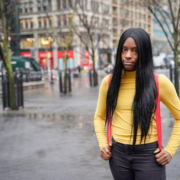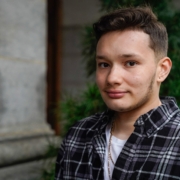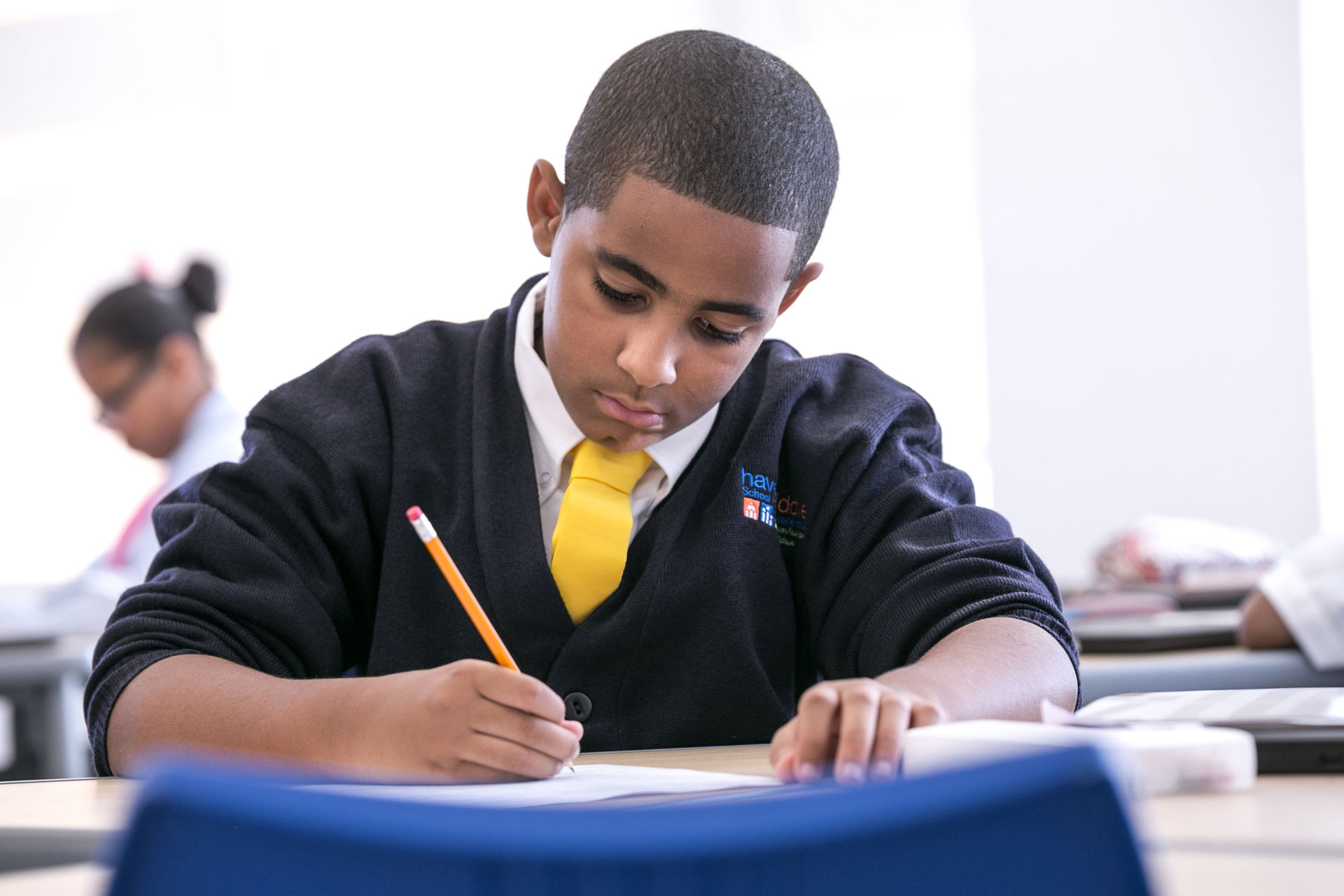As a first-year student at Borough of Manhattan Community College, she is enjoying the independence, stability, and support that the Dorm Project has provided. Over the past few months, she has appreciated the emotional and academic assistance that her coaches have provided in navigating college life. As a Childhood Education and Psychology major, she’s planning for a career in Social Work. She is innately driven by her desire to give back, and to use her own experiences growing up to assist others in foster care.
He’s majoring in business at Queensborough Community College with the goal of turning his passion for athletic footwear into an opportunity for international entrepreneurship.The Foundling has been an integral part of his journey. In three years with the Dorm Project, the support he’s received from his team of case planners, tutors, social workers, and coaches have allowed him to succeed in classes, find career mentorship,
travel abroad, and work toward making his dreams a reality.
For over 150 years, The New York Foundling has worked in partnership with our neighbors to ensure that everyone can meet their full potential when facing challenging situations. This hasn’t changed, and our staff continue to provide life-changing and meaningful support in light of the COVID-19 pandemic. This series will share how The Foundling’s many programs are responding to the needs of their community.
The Foundling launched Haven Academy to respond to the unique educational needs of children involved in foster care or whose families are involved in the child welfare system. The school utilizes a specialized trauma-sensitive curriculum that is helping to close the achievement gap for child welfare-involved youth. Although COVID-19 means that scholars cannot attend Haven Academy in person, its dedicated teachers and staff continue to providing meaningful engagement and support for the school’s community of families.
Work for Lauren Katzenstein used to mean commuting from her home in Queens to Mott Haven in the Bronx. Now it means getting out of bed. “My room has become everything from where I sleep, to where I work.”
Lauren is a social worker at The Foundling’s Mott Haven Academy Charter School in the Bronx, a Pre-K through 8th grade charter school serving one of the country’s poorest congressional districts.
With the outbreak of COVID-19, Haven Academy faced a remarkable challenge: continuing to support their students’ education while dispersed in a community that lacked basic internet access, food security, and – in some cases – even shelter. “This all happened so fast there wasn’t time to prepare,” Lauren explains, “this is trauma for a lot of people.”
The obstacles didn’t stop Haven Academy from mobilizing, not only to keep their students on track academically, but also to support the local community.
When the crisis hit, Haven Academy opened their cafeteria to provide over 280 hot, chef-prepared takeout meals a day, prepared for and distributed to the community with utmost hygiene and sanitation. From there, the staff began working directly with families to ensure long-term food stability.
Lauren noted that beyond the staff, the families of Haven Academy have gone to incredible lengths to support one another: providing food and meals to one another, offering emotional support, and more. “The sense of community has been awesome.”
Meanwhile, partners helped secure hundreds of Google Chromebooks and mobile hotspots to distribute amongst their students, ensuring every child stays connected with the school community. Jardy Santana, one of Haven Academy’s teachers, made clear: “We want to make sure that we’re there academically and emotionally.”
To that end, the staff of Haven Academy have built daily schedules that engage the students with teachers, social workers, and each other as much as possible. Each student has a single point-of-contact they check-in with once a day, and staff make themselves available by phone, text, and video call as much as possible. “We want to maintain a sense of normalcy,” Lauren added.
Despite the changes, the students have so far been engaged – perhaps even more so than in the classroom, according to Jardy. “They seem really excited about having this novel experience… they really like having their work through technology.”
Jardy noted that students have actually participated more and have been more responsive to feedback. Looking forward through the end of the crisis, she thinks incorporating more technology into the classroom could help bolster learning. “As an educator, I’m seeing all new ways of using technology in the classroom that I hadn’t thought about.”
Some challenges still remain, and both Lauren and Jardy noted that some families are struggling. “We’ve had a few separate mental health crises so far,” Lauren confided, “but everyone is working together to figure it out.”
It hasn’t been easy for the staff, either. “It’s been really challenging each day,” Jardy expressed, “Each day I have this moment of panic and uncertainty, of feeling like ‘oh my goodness when does this end?’ But those moments have been more and more infrequent. We’re doing the best we can, and parents have been really responsive and supportive.”
Lauren echoed that it’s been difficult “balancing [her] feelings and holding space for the feelings for everyone.” But the balancing act is just another challenge to overcome: “Seeing the sense of community has kept me and others on the frontline motivated and ready to push through obstacles.”
To learn more about how Mott Haven Academy Charter School and The New York Foundling are responding to the COVID-19 pandemic in New York, visit our emergency response page. Stay tuned for more stories from the frontlines as we continue to support our neighbors on paths to stability and strength.
of students over the age of 14 with a mental health condition drop out of school
of the population of Puerto Rico has at least one developmental disability
of children between the ages of 3-17 have a one or more developmental disabilities
children in New York City are growing up in low-income households
of teens in foster care are in special education, compared to 20% citywide
of young people who age out of foster care have a high school degree, compared to 67% nationally
young people who age out of foster care will become homeless



